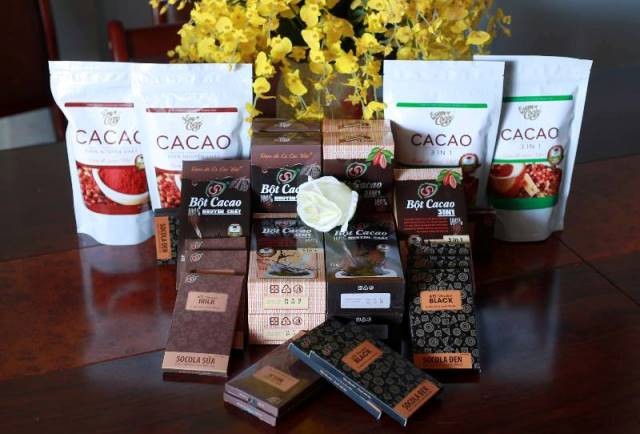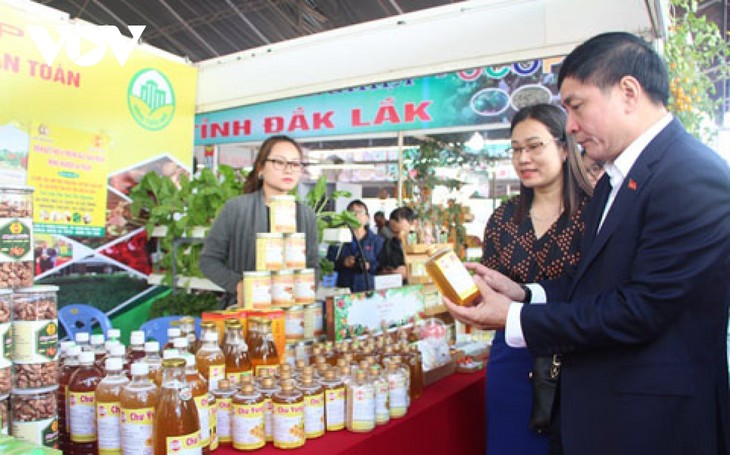(VOVWORLD) - The classification and rating of products under the “One commune one produce” program (OCOP) has driven rural economic development in Dak Lak province, led local rural building in a sustainable direction, and affirmed the position of Dak Lak-brand farm produce.

The cocoa powder product of Nam Truong Son Cocoa Company
(Photo: doanhnghiepvn.vn)
|
Approved by the Prime Minister in 2018, the OCOP program focuses on developing strong agricultural and non-agricultural products and services according to the advantages of each locality. The agencies in charge are private economic entities and cooperatives.
By the end of this year, Vietnam hopes to have 2,500 OCOP products, improve more than 3,900 participating businesses, and attract 500 new small and medium-sized enterprises to the program. OCOP products are rated by five levels from 1 to 5 stars.
Coffee and cocoa are Dak Lak’s most famous products. The smooth cocoa powder of Nam Truong Son Cocoa Company in Ea Na hamlet, Krong Ana district, has been certified a 4-star OCOP product, the highest ranking among 11 OCOP items newly rated by Dak Lak province.
Truong Ngoc Quang, Director of Nam Truong Son Company, a leading producer, supplier, and distributor of cocoa and cocoa products in Vietnam, said the ranking will help the company in the domestic market and boost its exports.
“We have joined many certification and award systems,” said Quang, adding “the recognition and assessment by the OCOP, a national program, will help us establish the brand and the community of OCOP products will encourage cooperation and sharing of production methods.”
 Chu Yang Sin bee honey of Dak Lak province is on display at the Central Highlands Agricultural and OCOP Product Trade Fair 2019. (Photo: VOV) Chu Yang Sin bee honey of Dak Lak province is on display at the Central Highlands Agricultural and OCOP Product Trade Fair 2019. (Photo: VOV) |
Tran Thi Kim Luyen, owner of the Kim Luyen Turmeric Starch Company, said participating in the OCOP program is a way for businesses to identify their limitations and shortcomings and improve themselves.
According to Luyen, “It’s a challenge but also an opportunity for a company’s products to become more widely known in the market. Learning its strong points and weaknesses will help the company improve and produce items that meet consumer tastes.”
OCOP products have raised the awareness and sense of responsibility of producers.
Nguyen Hoai Duong, Director of the provincial Department of Agriculture and Rural Development, said, “OCOP products have long been available in the market, but to meet the quality standards set by the ranking system, businesses must improve their production process.”
“We will increase training for our managers to give them a thorough understanding of the ranking criteria, so they can plan production accordingly,” Duong told VOV.
Dak Lak’s goal is to improve 27 existing OCOP products in agriculture, services, and rural tourism by the end of this year and certify one or two products of national 5-star level and 10 to 12 products of provincial 3 or 4-star level.
Dak Lak will also try to have 10 to 15 more cooperative groups, cooperatives, or businesses participating in the OCOP Program this year.